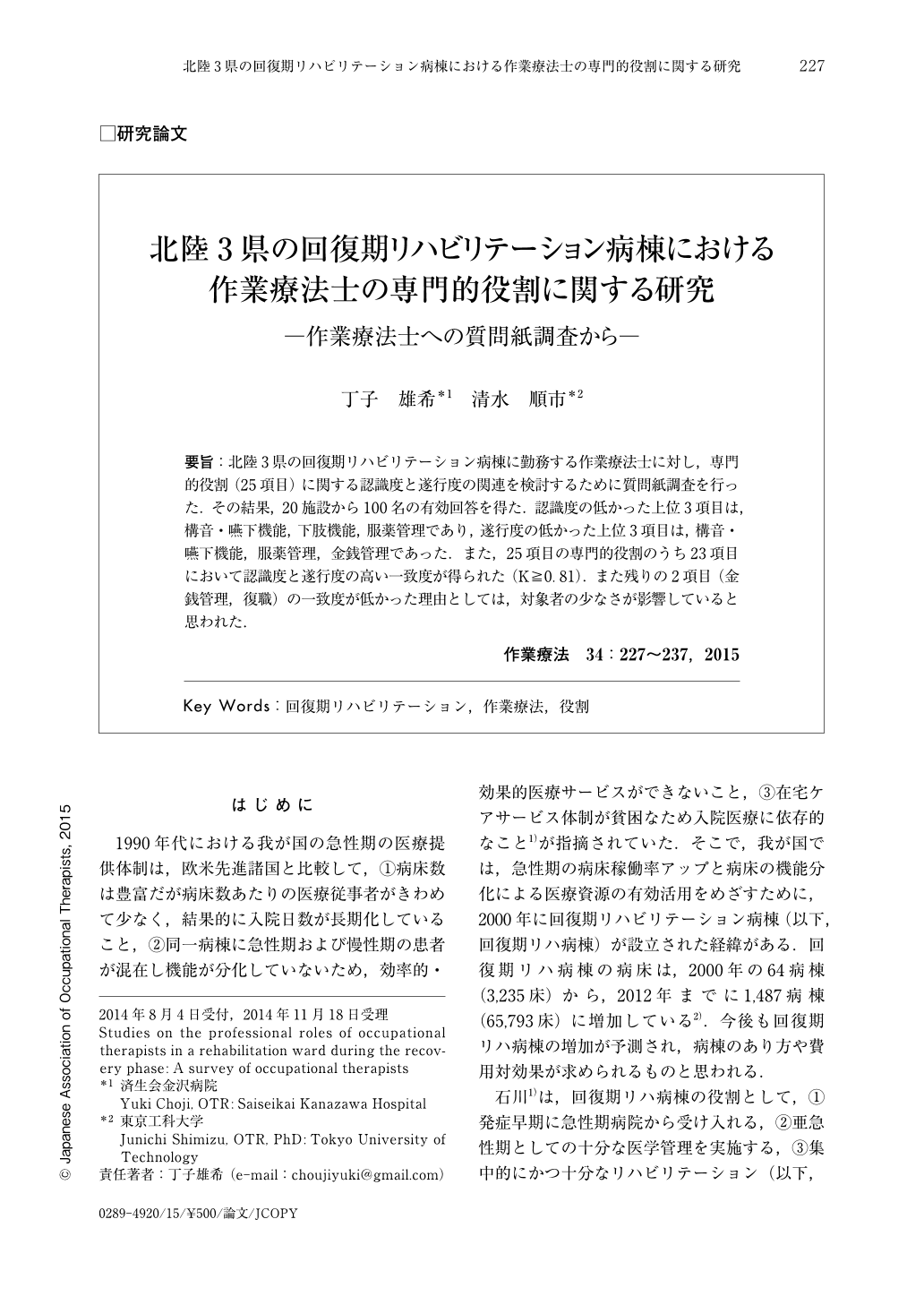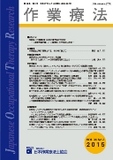Japanese
English
- 販売していません
- Abstract 文献概要
- 1ページ目 Look Inside
- 参考文献 Reference
- サイト内被引用 Cited by
要旨:北陸3県の回復期リハビリテーション病棟に勤務する作業療法士に対し,専門的役割(25項目)に関する認識度と遂行度の関連を検討するために質問紙調査を行った.その結果,20施設から100名の有効回答を得た.認識度の低かった上位3項目は,構音・嚥下機能,下肢機能,服薬管理であり,遂行度の低かった上位3項目は,構音・嚥下機能,服薬管理,金銭管理であった.また,25項目の専門的役割のうち23項目において認識度と遂行度の高い一致度が得られた(K≧0.81).また残りの2項目(金銭管理,復職)の一致度が低かった理由としては,対象者の少なさが影響していると思われた.
The purpose of the study is to clarify the relevance of practice and self-image of occupational therapists (OT). Method : A questionnaire was used with OTs that are registered with the recovery phase rehabilitation ward association in a hospital in the Hokuriku region. The questionnaire consisted of 25 items, and were collected anonymously. This study was performed with the approval of the Kanazawa University medical ethics review committee. Results : Of the 26 facilities which were requested to participate, 20 agreed, and 100 of the 158 OTs to whom the questionnaires were sent completed the questionnaire. 31 of the subjects were male and 69 were female, and 53% of the respondents had less than 5 years' experience. 48% of the patients had cerebrovascular disease and 41% suffered from motor disorders. The items in which OTs had a low self-image of their professional role were articulation & swallowing, lower limbs, and medication management. The items in which there was were few roles for the OTs were articulation & swallowing, medication management, and finance management. Degree of alignment of OT practice with self-image the OT's professional roles was high in 20 items (K≧0.81) : skilled movement, upper limbs, articulation & swallowing, trunk, lower limbs, physical endurance, cognition, psychology, eating, grooming, dressing, bathing, toileting, bed activity, transfer, ambulation, wheelchair, cooking and cleaning, outdoor locomotion, bridging the gap between Capability-ADL and Performance-ADL, medication management, life rhythm management, and value/interest/custom/role. The low degree of alignment in the remaining 2 items (reinstatement, finance management) may be due to the small number of patients who were influenced by them.

Copyright © 2015, Japanese Association of Occupational Therapists. All rights reserved.


